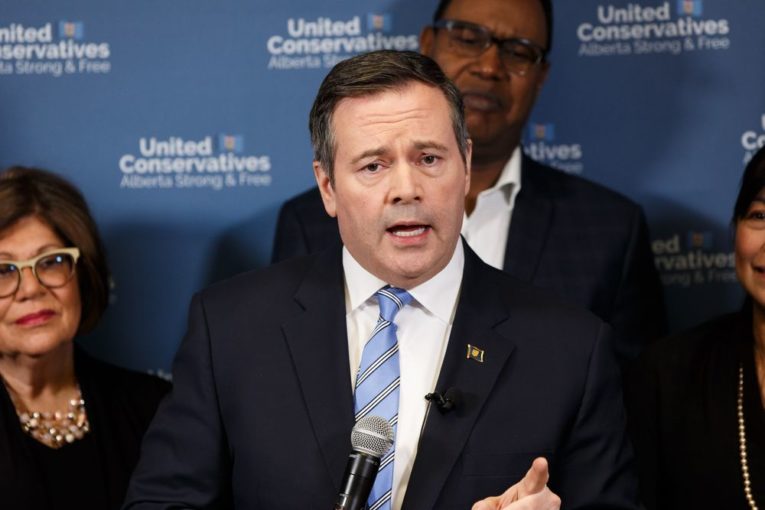
United Conservative Party Leader Jason Kenney unveiled details of the party’s proposed Job Creation Tax Cut on Monday.
If elected, Kenney said the party would lower the province’s corporate tax rate to eight per cent, reducing the rate one point per year over four years starting as of July 1.
Kenney said the cuts would allow for the creation of “55,000 jobs, and grow Alberta’s economy by $13 billion.”
The move would be a reversal, and more, of the NDP’s increase to the corporate tax rate, which brought the percentage up to 12 from 10 per cent. Kenney said the plan would not alter the NDP’s reduction of the small business tax to two per cent from three per cent.
Reducing the tax rate would result in a “$348-million reduction in revenues” in the first year, Kenney said, offset by a $1.2-billion gain by 2023 due to the “stimulative effect of the tax cut in the years two, three and four of its implementation.”
“It’s only in the first year, fiscal year 2019-2020, that there would be a short-term reduction in government revenues of … $348 million,” he said.
The UCP leader said his government would offset those losses by scrapping the NDP’s $3.7-billion lease of rail cars to move oil in the absence of pipeline development, calling the plan “reckless.”
He said reversing the rail plan would more than compensate for the loss and create “10 times the size of the revenue shortfall in that first year.”
Premier Rachel Notley refuted the UCP’s claims on possible gains from the proposed cuts, saying the plan would “blow about a $4.5-billion hole in our budget over four years and roughly at least $2 billion after that.”
“This is a historic giveaway to profitable, big corporations at the expense and on the backs of our hospitals … on the backs of our kids, at the expense of our future,” Notley said.
The premier called the UCP proposal “gratuitous,” saying it would only serve to give “a whole bunch of money to profitable, elite corporate leaders.”
Related
Kenney rejected what he called NDP “class warfare rhetoric” that claims the tax rate could line the pockets of corporations rather than encourage growth.
Notley said the NDP would stay the course on its 12-per-cent corporate tax rate if re-elected, and added the oil-by-rail plan is still the best “medium-term solution to the problem” of moving Alberta crude to market.
The UCP’s calculations on the economic boon the corporate tax cuts could create come from economist Dr. Jack Mintz and a 2012 paper by University of Calgary economist Dr. Bev Dahlby.
In the report, Dahlby states tax relief would result in a $12.7-billion increase in the province’s GDP by 2023.
If the cuts were to stay in place for 10 years, the report says the province’s “per capita real GDP” would have increased by 6.5 per cent.
Calgary economist Trevor Tombe said on Twitter the UCP plan’s job creation numbers carry water as “a defensible claim, not that it’s certainly going to happen.”
Kenney made the announcement from the empty 26th floor of Encana Place, using the backdrop to highlight the city’s downtown vacancy rate problem.
And while Calgary Mayor Naheed Nenshi said he is “always happy when any party is looking at Calgary’s problems specifically,” he added that he has “not had a lot of businesses tell me that their provincial income tax is what’s preventing them from growing.”
On Twitter: @RCRumbolt
You can read more of the news on source
